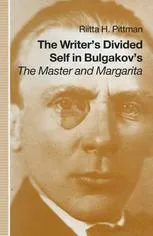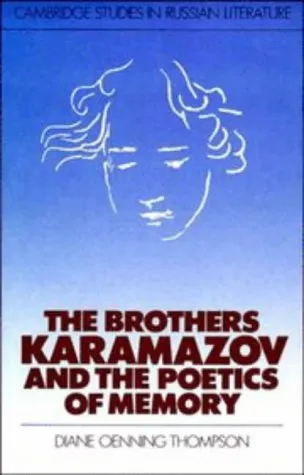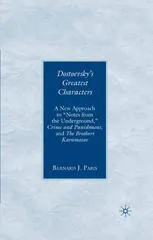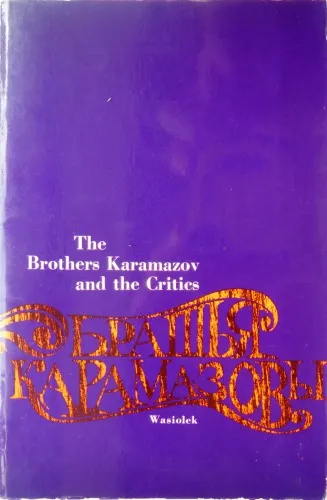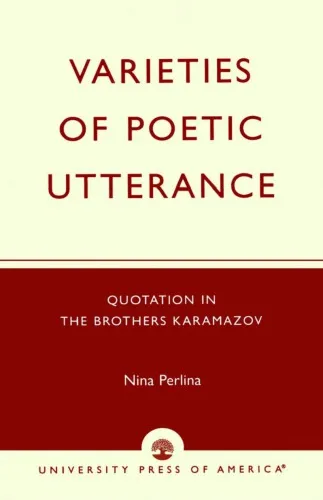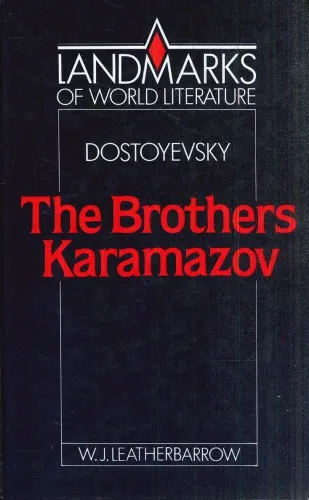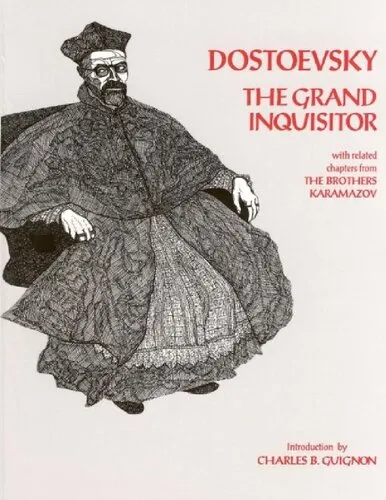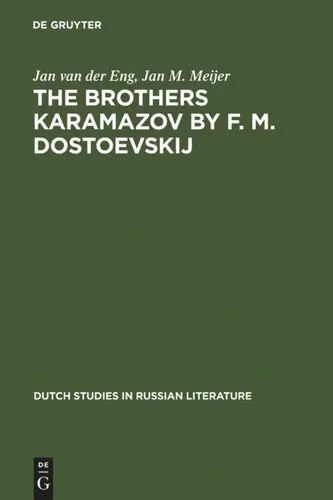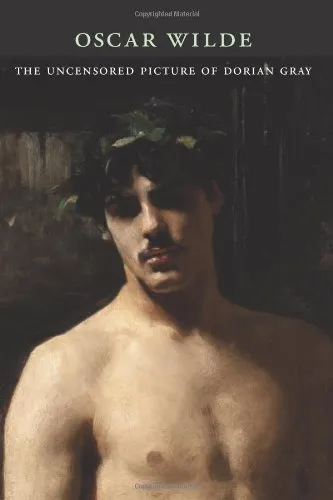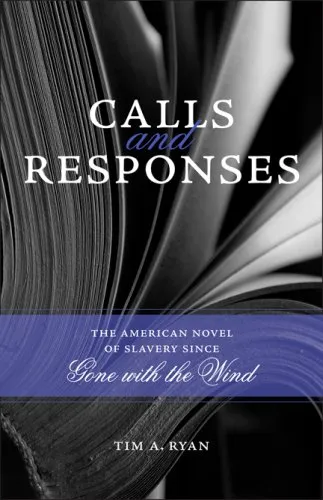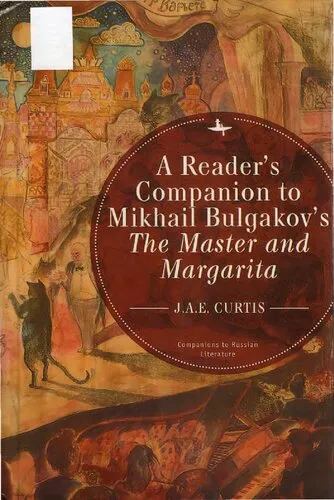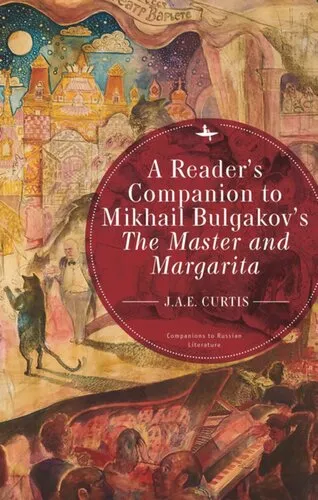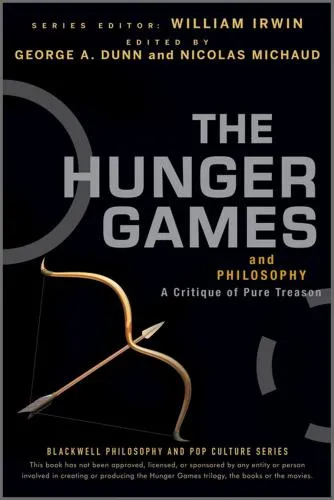The Writer’s Divided Self in Bulgakov’s The Master and Margarita
3.9
بر اساس نظر کاربران

شما میتونید سوالاتتون در باره کتاب رو از هوش مصنوعیش بعد از ورود بپرسید
هر دانلود یا پرسش از هوش مصنوعی 2 امتیاز لازم دارد، برای بدست آوردن امتیاز رایگان، به صفحه ی راهنمای امتیازات سر بزنید و یک سری کار ارزشمند انجام بدینکتاب های مرتبط:
معرفی کتاب
کتاب "The Writer’s Divided Self in Bulgakov’s The Master and Margarita" نوشته رییتا اچ. پیتمن، یک تحلیل ژرف و هنری از یکی از برجستهترین آثار ادبیات روسیه معاصر است. این کتاب به بررسی نقش و تأثیر "خود تقسیمشده" نویسنده در رمان "مرشد و مارگاریتا" نوشته میخائیل بولگاکوف میپردازد.
خلاصهای از کتاب
کتاب پیتمن، مطالعهای دقیق و گسترده از شخصیتهای رمان بولگاکوف ارائه میدهد، و به خصوص بر روی خودشناسی و خودتقسیمی نویسندگان در ضمن روایت تمرکز دارد. بولگاکوف در این رمان پیچیده، جامعهای را به تصویر کشیده که در تقابل با ارزشهای دینی، اجتماعی و فلسفی قرار دارد. نویسنده در تلاش است تا از خلال شخصیتهایی مانند مرشد و مارگاریتا، ایدههای پیچیدهای درباره ایمان و آزادی فردی را جستجو کند. این کتاب به ما نشان میدهد که چگونه بولگاکوف دوگانگیهای داخلی نویسندگان را به شکلی هنرمندانه به تصویر میکشد.
نکات کلیدی
- تحلیل پیچیدگیهای درونی شخصیتهای اصلی و خودتقسیمی نویسندگان
- بررسی ارتباط میان روایات داستانی و مفاهیم فلسفی و اجتماعی در آثار بولگاکوف
- تأکید بر نقش ایمان، اخلاق و قدرت در ساختار روایت
- بحث درباره تأثیرات سیاسی و فرهنگی رمان "مرشد و مارگاریتا" در بستر تاریخی روسیه
جملات معروف از کتاب
"در دل هر نویسندهای، جنگ داخلی با خودی انکار شده، در جریان است که در آینه شخصیتهایش تجلی مییابد."
"بولگاکوف جهانی به تصویر میکشد که در آن واقعیت و خیال به طور نادرست و پیچیدهای درگیر میشوند."
چرا این کتاب مهم است
کتاب "The Writer’s Divided Self in Bulgakov’s The Master and Margarita" نه تنها ابزار مهمی برای درک بهتر رمان بولگاکوف است، بلکه به مخاطب کمک میکند تا به مفاهیم عمیقتری درباره خودشناسی و تقابلهای درونی بپردازد. مطالعه این تحلیل میتواند برای علاقهمندان به ادبیات روسیه و تراوشات فلسفی رابطه بین متن و بستر تاریخی، ارزشمند باشد. از این دیدگاه، کتاب پیتمن نشانگر اهمیت بررسی روانشناسی شخصیتها و خودتقسیمی به عنوان راهی برای فهم بهتر نه تنها آثار ادبی بلکه خودِ جامعه و تاریخ نیز میباشد.
Introduction to 'The Writer’s Divided Self in Bulgakov’s The Master and Margarita'
Mikhail Bulgakov’s seminal work, "The Master and Margarita," remains one of the most profound literary explorations of the dualities within human nature. "The Writer’s Divided Self in Bulgakov’s The Master and Margarita" offers readers an in-depth examination into the complexities and intricacies of identity and creation, illustrated through Bulgakov's vivid characters and allegorical narrative. This insightful analysis not only dissects the many layers Bulgakov embedded within his magnum opus but also reflects on the universal struggle of finding coherence between the contradictory facets of human identity.
Detailed Summary of the Book
Bulgakov’s "The Master and Margarita" is a landmark of Russian literature, interweaving two primary storylines—the devil’s visit to Soviet Moscow and the tale of Pontius Pilate and Yeshua in ancient Jerusalem. In "The Writer’s Divided Self in Bulgakov’s The Master and Margarita," I delve into the dual worlds Bulgakov creates, viewing them through the lens of the fragmented self. The book argues that Bulgakov’s portrayal of The Master, a character beset by societal oppression and personal self-doubt, parallels the author's own struggles against censorship and creative suppression in Stalinist Russia.
Through rigorous analysis, each chapter unravels how Bulgakov uses his characters to depict the clash between public personas and private identities, reflecting on the broader tensions of his time. The devilish figure of Woland becomes a critical mirror to societal hypocrisies, while Margarita’s journey underscores themes of loyalty and sacrifice. This work connects these narrative elements to Bulgakov's own experiences, ultimately highlighting a universal narrative of internal conflict and the quest for self-harmony.
Key Takeaways
The book provides major insights into Bulgakov’s masterpiece, demonstrating how the theme of the divided self not only defines the characters but also mirrors the societal and personal struggles of the author:
- The perpetual conflict between individual freedom and societal constraints.
- The allegorical use of fantastical elements to critique and reflect on contemporary societal issues.
- An exploration of faith, morality, and redemption within a repressive regime.
- The narrative techniques that blend realism with the supernatural, creating a multifaceted reading experience.
Famous Quotes from the Book
Throughout "The Master and Margarita," Bulgakov crafts numerous memorable quotes that capture essence and themes explored in "The Writer’s Divided Self in Bulgakov’s The Master and Margarita":
"Manuscripts don’t burn" – a testament to the imperishable nature of truth and art.
"Cowardice is the most terrible of vices" – an exploration of moral and ethical courage that resonates throughout the text.
Why This Book Matters
"The Writer’s Divided Self in Bulgakov’s The Master and Margarita" is essential reading for anyone seeking a deeper understanding of Bulgakov's novel or interested in the thematic exploration of duality and the divided self. By examining the internal and external conflicts faced by the characters, the book offers readers new perspectives on coping with their inner contradictions. It is a profound commentary on the relationship between creator and creation, individual and society, illuminating Bulgakov's extraordinary ability to weave complex themes into an enduring narrative.
Additionally, this book holds significant relevance in today’s world, where the balancing act between public personas and private identities continues to be a universal human experience. By providing a detailed exploration into how Bulgakov encapsulates these eternal struggles, "The Writer’s Divided Self in Bulgakov’s The Master and Margarita" becomes a mirror reflecting both past and present dilemmas faced by individuals and society.
Ultimately, this book not only serves as a critical companion to Bulgakov’s novel, enriching readers' understanding and appreciation of the original text, but it also provokes thought and introspection that transcends time and cultural boundaries.
دانلود رایگان مستقیم
شما میتونید سوالاتتون در باره کتاب رو از هوش مصنوعیش بعد از ورود بپرسید
دسترسی به کتابها از طریق پلتفرمهای قانونی و کتابخانههای عمومی نه تنها از حقوق نویسندگان و ناشران حمایت میکند، بلکه به پایداری فرهنگ کتابخوانی نیز کمک میرساند. پیش از دانلود، لحظهای به بررسی این گزینهها فکر کنید.
این کتاب رو در پلتفرم های دیگه ببینید
WorldCat به شما کمک میکنه تا کتاب ها رو در کتابخانه های سراسر دنیا پیدا کنید
امتیازها، نظرات تخصصی و صحبت ها درباره کتاب را در Goodreads ببینید
کتابهای کمیاب یا دست دوم را در AbeBooks پیدا کنید و بخرید
1465
بازدید3.9
امتیاز0
نظر98%
رضایتنظرات:
3.9
بر اساس 0 نظر کاربران
Questions & Answers
Ask questions about this book or help others by answering
No questions yet. Be the first to ask!
